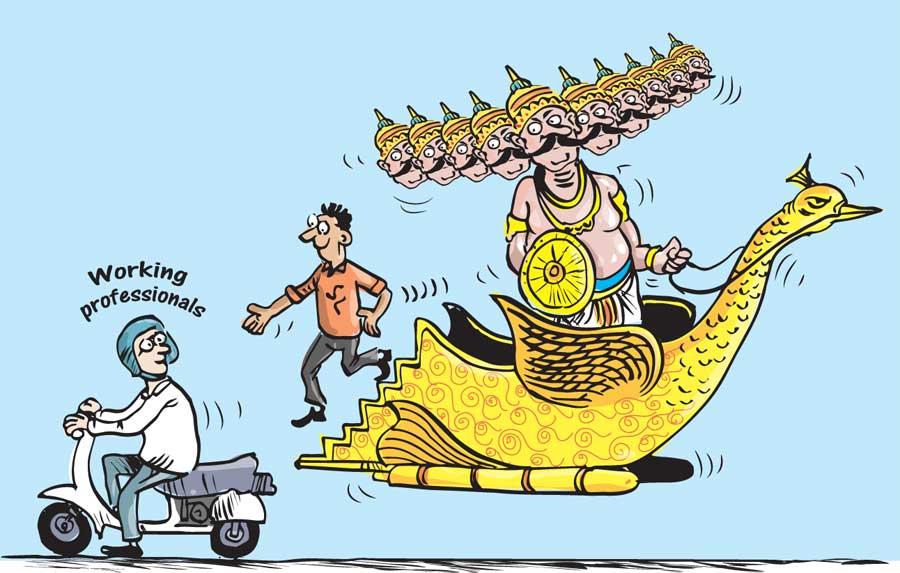Reply To:
Name - Reply Comment

This is a ‘pearl of a nation’ which looks up to heroes rather than working professionals. We saw the Mahinda Rajapaksa era when people looked up to the former president as a hero and said that they’d survive on one meal a day and not complain if funds can be used to finish off the war against terrorism. After the war concluded, that president used his office, the funds available and loans taken, during his next term, to invest on projects that didn’t promise a worthy return. But still people of this island believed in a hero and his plans. There were never really complaints from people and whatever professionals had to say about Rajapaksa projects were disregarded as rubbish.
We really don’t know why this mentality exists because still the political stage that exists attracts a large number of voters who may quite conveniently believe that a politician knows the way out of a problem and not a professional. A good example for this was when during the covid pandemic consumers who used to visit a leading fish market in Western Province boycotted the place and refused to eat the products on sale after the entire staff there contracted covid. People disregarded the opinion by doctors that fish don’t carry the covid virus.
Most recently, under the present regime, we saw how the majority of parliamentarians defeated a no confidence motion against the present Health Minister who came under fire for not taking steps to halt both the import of substandard medicines and a situation that led to the scarcity of essential medicines. Here again the voice of professionals in the medical field were shouted down.
Does this country need heroes? Or can we rely on working professionals instead to fill the seats in parliament and get them to show us the way out of this economic mess? When we were kids (in the 1980s) we looked up to comic characters like ‘Spiderman’, ‘Batman’ and ‘The Incredible Hulk’ with little or no convincing by parents to read their inspiring stories. It didn’t mean that we didn’t know of characters like King Dutugemunu, Veera Puran Appu or Keppetipola Disawe because they existed in school history books. Comic author and creator of these characters ‘Stan Lee’ knew how to write stories, but sadly not the authors hired by the education authorities to write about our heroes. So when Mahinda Rajapaksa came along and played the role of president people grabbed the opportunity to make him a hero. The game then changed for working professionals because there was a successful politician’s way of doing things.
Now we see President Wickremesinghe earning much praise for the attempts he is taking to steady Sri Lanka’s economy, which the IMF expects to record a growth of 1.5% by next year. There was much hope for the nation when he appeared on television after assuming duties as president and said that all state institutes must account for all monies spent to the last cent. That’s how the private sector runs its companies. This president time and again spells out bits and pieces of his economic plan, and those most receptive to him are people engaged in business. The vote generating masses might find that talk like listening to Greek or Latin. They only understand about Samurdhi, free meals and aid. Sadly Wickremesinghe is not a hero in the minds of the people like the two presidents the Rajapaksa family produced.
India’s celebrated bestselling author Amish Tripathi in his book Raavan: Enemy of Aryawartha writes that a character like Raavan appears when evil exists and to balance the equation about who rules who. According to him such heroes are taken out of the equation in a brutal manner once a task is accomplished. Then the stage is set for a pious leader to rule. People would have by then refined and be ready to work under a new leader. That’s what India has understood. Unfortunately Sri Lanka might not be that fortunate. The irony is that we have a different version of Raavan and we still hero worship him!